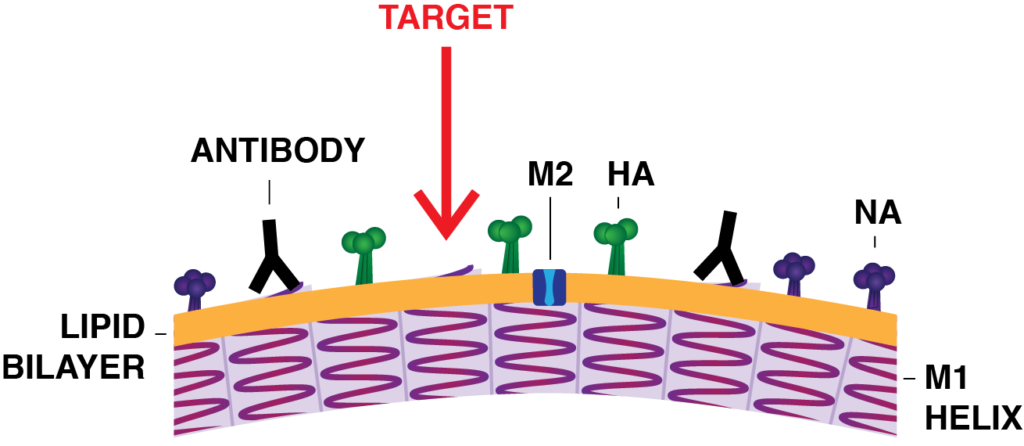Our Science

The potential to change the world
Among the hundreds of thousands of virus samples sequenced over the past century, only four significant sequence variants of an exposed M1 region have been detected. EnGen Bio scientists discovered that an isolated monoclonal antibody bound all four M1 sequence variants of the exposed region (the "epitope"), with equal affinity. This is significant because it means that just one antibody specificity is sufficient to recognize all Type A viruses.
One antibody, one universal response
When the engineered peptide was used for in vivo, lethal and nonlethal viral challenge studies in both mice and swine vaccinated with the engineered peptide, the test vaccine yielded data consistent with protection from and clearance of the viruses. Thus, with optimization, we believe we have an excellent basis for a universal Type A influenza vaccine.
How it works
The Type A influenza M1 protein is enveloped by a lipid bilayer where the hemagglutinin (HA), neuraminidase (NA) and M2 proteins are embedded. While it has been believed that M1 is completely protected by the lipid membrane, we have discovered that a portion of it is in fact exposed and accessible to monoclonal antibody binding, and therefore represents a vaccine target.
We have determined that it is critical to engineer the immunogen to allow the immune system to focus its response on the surface-exposed, highly conserved, M1 epitope. Once the immune system has done this, it will recall that response when re-challenged by any Type A influenza.
